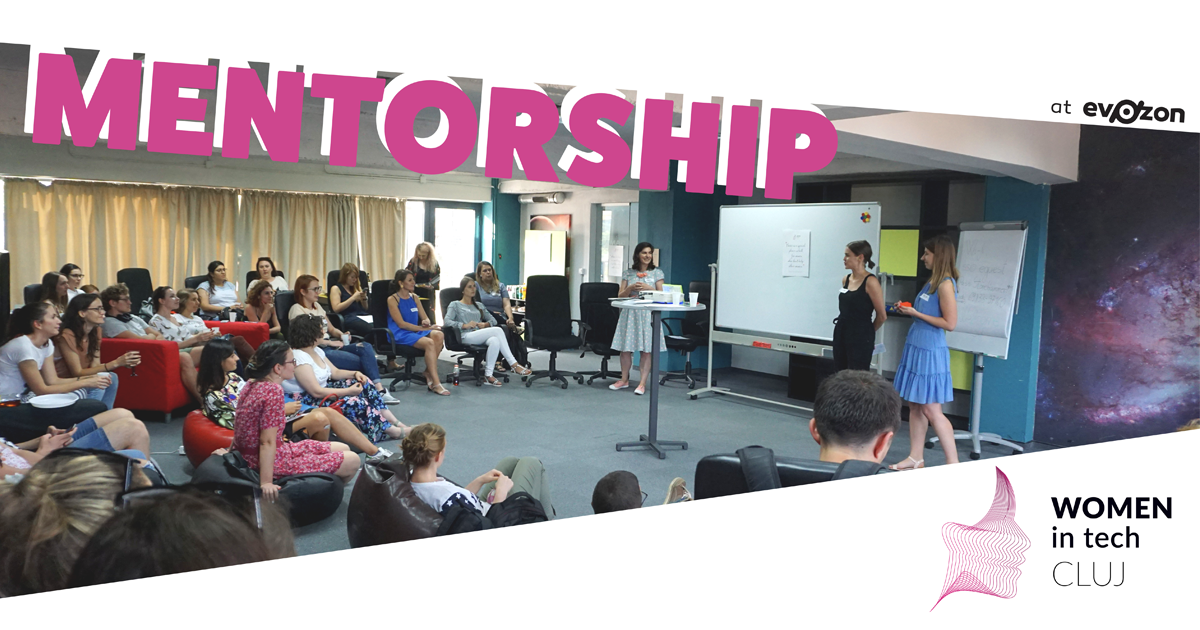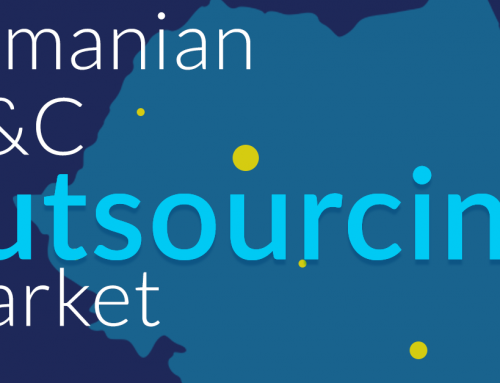Ever heard about the women in tech movement around the world? It comes in different names and shapes, from Women in Tech to Women Who Code, and from Girls in Tech to Rails / Django / name-a-framework Girls. The purpose is pretty straightforward: get more women to code and, generally, get them into tech.
Their aim is to create a safe space where women can share, learn, grow, and support each other in matters of career, development, and so much more.
The meetup on mentorship
Their first meetups rolled in, and, for their third event, they felt like Mentorship was a topic they just don’t discuss enough.
This very meetup’s attendees were welcome with tasty appetizers to open the appetite for networking and sharing. And, after a brief networking session, the group started talking about what mentorship is and where it’s coming from, the difference between coaching and mentoring, where and for what purpose to find a mentor.
Here’s a brief pinpoint of the addressed topics and learnings in an extract from Oana Sipos, one of the meetup organizers:
“Mentorship is a relationship which can be both formal and informal. You can totally ask someone to mentor you (a friend, a colleague at work, or someone in the industry you look up to just to name a few), but it can as well be an every now and then encounter with a person you admire where you bounce ideas and get feedback on your latest questions.
Contrary to coaching, which is targeted for improving a specific ability on a short time, mentoring is defined by a longer term relationship. It is meant solely for improving the abilities of the mentee, with no particular benefit for the mentor.
Why would someone want to be a mentor then, you might ask yourself. Oh well, there are people who after a particular set of achievements, are interested to pay forward what they learned. To help guide others. And get nothing tangible in return but the content of helping someone stepping up.
Who would be a good mentor for you?
There is no defined set of rules. But a good dose of common sense will help you identify him/her. It should be someone you can connect to, someone who can dedicate some time and whose advice/feedback resonates with you. You don’t need to meet weekly or monthly even. But you should definitely be responsible for keeping the connection warm.
Last, but not least, you don’t need to restrain yourself to just one mentor. You can have any number of mentors you want. Moreover, different mentors can help you improve different areas of your life. One can help you sort problems better and more efficiently. Another mentor can give good advice on your career path. And a third one can help you get better at the financial sector.
Whatever you want to improve, just define it. Identify the (potentially) right person to help you and just ask for help. Remember mentorship is not like a marriage. If it doesn’t work out, that’s it. Move on and find another person.
Sharing ideas
After the presentations, group discussions, and open show of hands, we called it a meeting and started the after-party. Over cakes and wine, we shared impressions, ideas, and future plans on the lovely rooftop terrace of our hosts.
As we’re always in for feedback and learning what to improve and do better next time, we asked the participants to take a moment and share with us the learnings of the two hours spent together.
Anamaria told us: “You came just on time. I realized I needed a mentor and now I know “how it looks”. Laura realized she can have more than just one mentor, and the best part of it is it doesn’t need to be formalized so that it happens.
Final thoughts
We’re definitely keeping it up and already preparing the next one. Feel free to join the meetup group in order to receive updates and know what we are up to. Also, if your company would like to host us, feel free to drop us a message on meetup.com as well. Happy mentoring until the next one!”

![We Planted 6 Trees With 0 People [Evozon Got Greener]](https://www.evozon.com/wp-content/uploads/2022/05/planted-6-trees-with-0-people-500x383.png)


